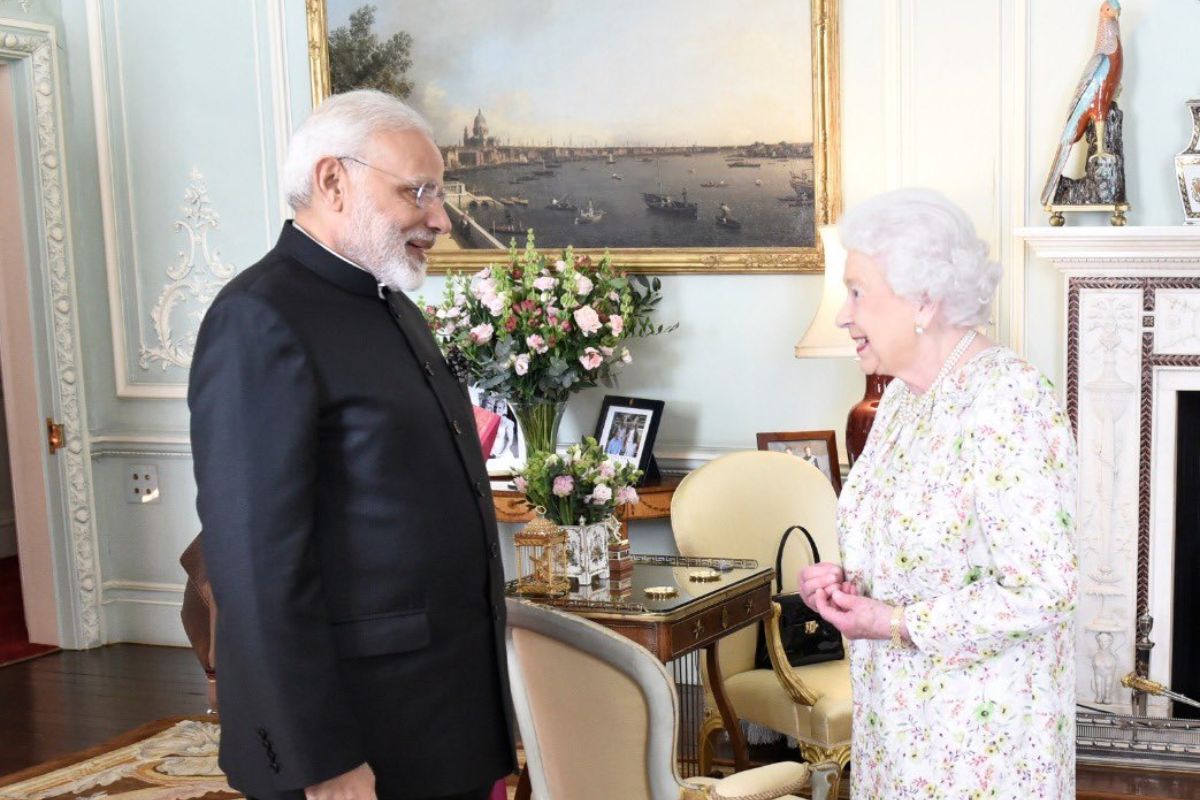Vikrant Massey: “PM Modi left teary-eyed at ‘The Sabarmati Report’ screening”
Vikrant Massey shares his emotional experience at the screening of 'The Sabarmati Report', where Prime Minister Modi praised the film and his performance.
Queen Elizabeth II the famous personality of British history is the longest reigning modern monarch, She never followed the traditional ways of the monarchy.

Unique relationship of the Queen Elizabeth with India
Queen Elizabeth II the famous personality of British history is the longest reigning modern monarch, She never followed the traditional ways of the monarchy.
After World War Two she emerged as a young woman who had won the nation’s respect as she was a believer in peace and prosperity. In July 1947 Queen Elizabeth Announced her engagement with Philip and after her father’s death in 1953 she become the Queen of England as well as the Commonwealth nations.
Advertisement
She visited first time to India in 1961 with her husband King Philip, She was accorded a huge and friendly reception, and after that, she visited India two more times during her reign.
Advertisement
The first visit of the Queen to India was very crucial because after the independence India was overcoming the damage caused by the British rule.
When Queen Elizabeth was coronated, Jawaharlal Nehru was prime minister of India and India held its first general election just before this event. Since then India had several Prime Ministers and Presidents, and always had good relationships with the crown as Queen Elizabeth symbolized an element of continuity and goodwill. She also symbolised the inclusive nature of the Commonwealth.
“The warmth and hospitality of the Indian people and the richness and diversity of India itself have been an inspiration to all of us,” she said in one of her addresses. She built a unique relationship of empathy with India, which was not easy, she was respected by every citizen of India.
Out of respect, the Nizam of Hyderabad gifted the famous Cartier tiara and a diamond necklace of her choice for the queen’s wedding in 1947. The Queen’s second visit happened in 1983 when President Giani Zail Singh invited the royal couple and hoisted them in the parade at the prestigious Rashtrapati Bhavan, she visited Mother Teresa and honoured her contribution to society.
The third visit of the Queen wasn’t that smooth as it aggravated conflict throughout the country when she was enticed at the 50th Independence Day of India and not only that she was set to give a speech at Jallianwala Bagh premises which have a bloody history of sacrifice by the freedom fighters during the British rule.
“It is no secret that there have been some difficult episodes in our past. Jallianwala Bagh is a distressing example,” the monarch remarked in her banquet speech.
The relationship between India and the United Kingdom had seen many ups and downs but because of the charismatic nature of Queen Elizabeth- II it always becomes easy to continue good faith in the commonwealth.
“Britain and India have a long-shared history which today is a source of great strength in building a new partnership fit for this new century,” the Queen said once at Buckingham Palace addressing State Banquet for President Patil.
Advertisement